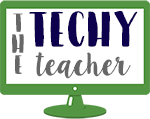In 2002, an organization called The Partnership for 21st Century Skills (P21) was founded as a coalition to bring together the business community, education leaders, and policymakers to position 21st century readiness at the center of US K-12 education and to kick-start a national conversation on the importance of 21st century skills for all students.
While many skill sets are similar to the skills that educators were teaching in the 20th century, 21st century learning is different because of technology. Technology has changed how our students live outside of school, and we know it has changed and will continue changing the types of jobs they may have in the future.
The Framework for 21st Century Learning

At the core of the framework is the 4Cs—Critical Thinking, Communication, Collaboration and Creativity. These shouldn’t be anything new to our classrooms and core subjects. Tying in Life and Career Skills and Information, Media, and Technology Skills in all content areas may be new, though. To support our student’s success in these areas, you will see four areas (Standards and Assessments, Curriculum and Instruction, Professional Development, and Learning Environments) in the foundation of the arch that help make the arch a success.
According to the website of the Partnership for 21st Century Skills, “P21 has identified and brought to the forefront a comprehensive set of skills that, along with content mastery, are what all sectors can agree are essential for success. The P21 Framework for 21st Century Learning took several years to develop, and it has been enhanced by resources such as the 21st Century Skills Maps that have been developed in collaboration with hundreds of educators who have shown how to integrate 21st Century Skills within their disciplines such as English, mathematics, science, geography, social studies, world languages and the arts.”
The 21st century skills shouldn’t be something “new” to your classroom. P21 explains, “To help practitioners integrate skills into the teaching of core academic subjects, the Partnership has developed a unified, collective vision for learning known as the Framework for 21st Century Learning. This Framework describes the skills, knowledge and expertise students must master to succeed in work and life; it is a blend of content knowledge, specific skills, expertise and literacies. Every 21st century skills implementation requires the development of core academic subject knowledge and understanding among all students. Those who can think critically and communicate effectively must build on a base of core academic subject knowledge. Within the context of core knowledge instruction, students must also learn the essential skills for success in today’s world, such as critical thinking, problem solving, communication and collaboration. When a school or district builds on this foundation, combining the entire Framework with the necessary support systems—standards, assessments, curriculum and instruction, professional development and learning environments—students are more engaged in the learning process and graduate better prepared to thrive in today’s global economy.”
These are the 21st Century Skills we should be working to ensure our students are gaining in our classrooms.

On the P21 Educators webpage, you can find additional resources to help you see how educators are recommending these skills are used in every content area. Be sure to check them out.
